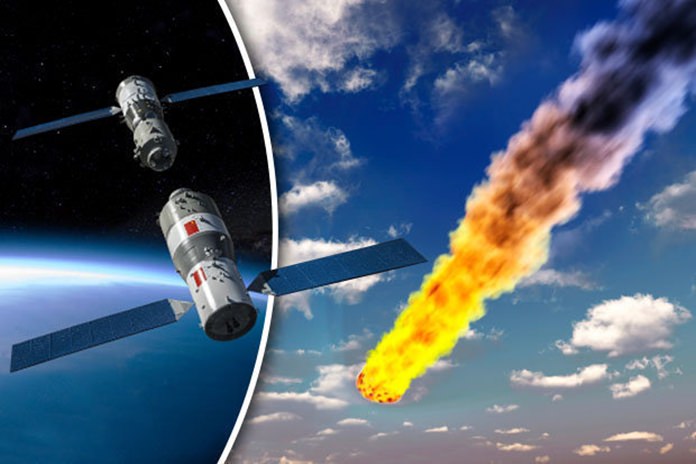
Bangkok – The Geo-Informatics and Space Technology Development Agency (GISTDA) has set up a team to monitor China’s Tiangong-1 space station falling into the earth’s gravity, with possibilities of less than 0.1 percent for its debris to drop on the ground in Thailand.
 GISTDA’s Executive Director Anond Snidvongs said his agency is coordinating with aerospace bodies across the globe to monitor the movement of the space station, which is expected to enter earth’s atmosphere on 10th April.
GISTDA’s Executive Director Anond Snidvongs said his agency is coordinating with aerospace bodies across the globe to monitor the movement of the space station, which is expected to enter earth’s atmosphere on 10th April.
Tiangong-1 is now orbiting at an altitude of 246 kilometers above the earth’s surface. The fall into the atmosphere will create friction which burns and breaks the structure into small pieces, leaving a few solid chunks of debris to penetrate the earth’s surface.
The GISTDA chief said chances for the debris to fall on the ground in Thailand are minimal. A team composed of experts in hazardous object collection has been formed to prepare for such unlikely events.
Touching on concerns over Hydrazine fuel used aboard the space station, the GISTDA director said the chemical is commonly found in the industrial sector, and only excessive exposure to the chemical may lead to cancer. The general public, who may have found aerospace debris, are advised not to touch it and to immediately report it to the authorities for timely inspection.





